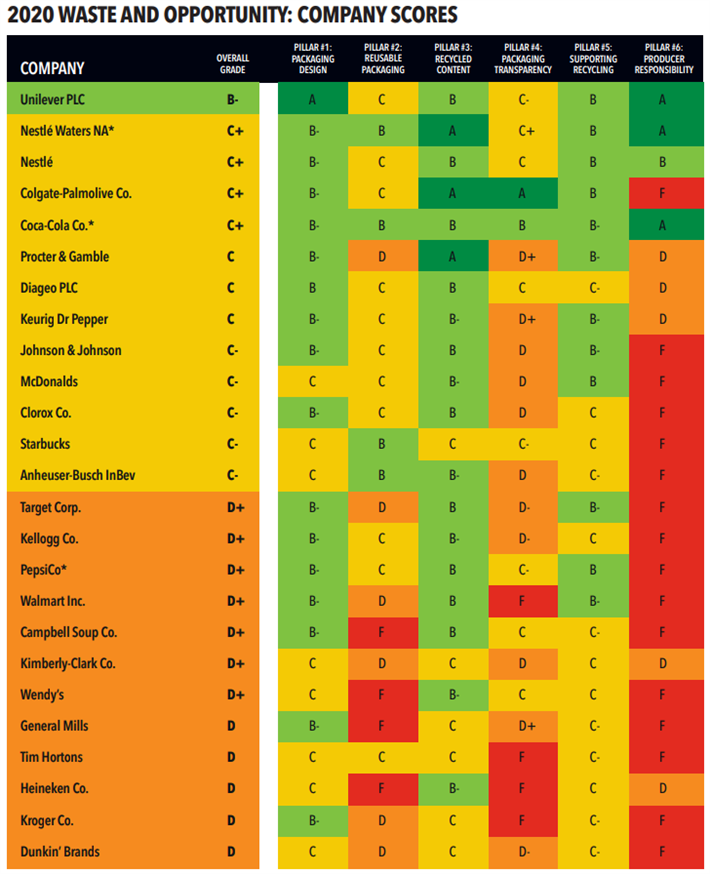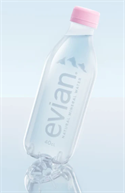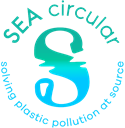CORPORATE ACTION
Analysis Of 50 Companies Finds Poor Performance On Abating Plastics Use
A study of 50 large companies in the beverage, quick-service restaurant, consumer packaged goods, and retail sectors finds limited and disappointing performance on plastic reduction.
As You Sow, which claims to be America’s non-profit leader in shareholder advocacy, measured and scored company performance on six core pillars: 1) Packaging Design, 2) Reusable Packaging, 3) Recycled Content, 4) Packaging Data Transparency, 5) Support for Recycling, and 6) Producer Responsibility.

As You Sow highlighted progress in various areas – the emergence of circular shopping platforms such as Loop and Algramo, new formats (shampoo bars, toothpaste tablets…) and corporate goals to quickly reduce plastics use.
However, it cautioned that progress overall is slow, especially on flexible packaging and recycling infrastructure improvement. It also points out that some companies have a history of underachieving. It highlights Coca Cola, the largest CPG plastics user, which has a history of missed targets stretching back to 1990 when it set a 25% US recycled content goal that was dropped in 1994. Despite various other commitments, the company told As You Sow in April 2020 (17 years after promising to get to 10%) that it had a current recycled PET average content of 9% in the US market.[Image Credit: © As You Sow]
As You Sow, which claims to be America’s non-profit leader in shareholder advocacy, measured and scored company performance on six core pillars: 1) Packaging Design, 2) Reusable Packaging, 3) Recycled Content, 4) Packaging Data Transparency, 5) Support for Recycling, and 6) Producer Responsibility.

As You Sow highlighted progress in various areas – the emergence of circular shopping platforms such as Loop and Algramo, new formats (shampoo bars, toothpaste tablets…) and corporate goals to quickly reduce plastics use.
However, it cautioned that progress overall is slow, especially on flexible packaging and recycling infrastructure improvement. It also points out that some companies have a history of underachieving. It highlights Coca Cola, the largest CPG plastics user, which has a history of missed targets stretching back to 1990 when it set a 25% US recycled content goal that was dropped in 1994. Despite various other commitments, the company told As You Sow in April 2020 (17 years after promising to get to 10%) that it had a current recycled PET average content of 9% in the US market.[Image Credit: © As You Sow]
CORPORATE ACTION: Coca-Cola
Seven Of Sprite’s APAC Markets Have Switched To Clear PET Bottles
CORPORATE ACTION: Danone
Evian Drops Plastic Label, Debuts Water Bottle With Engraved Logo
 As part of its efforts to be a fully circular brand, with all bottles made from 100% recycled plastic by 2025, Evian has launched a label-free 400 ml bottle that features an “Evian pink” bottle cap. Since labels or the adhesives they use are typically non-recyclable, their presence on a bottle complicates recycling. The new Evian bottle sidesteps this by engraving the logo and tag as the bottle is being formed.
As part of its efforts to be a fully circular brand, with all bottles made from 100% recycled plastic by 2025, Evian has launched a label-free 400 ml bottle that features an “Evian pink” bottle cap. Since labels or the adhesives they use are typically non-recyclable, their presence on a bottle complicates recycling. The new Evian bottle sidesteps this by engraving the logo and tag as the bottle is being formed.This is an elegant solution to the label problem, but raises a couple of issues. One is that the cap is still made from non-recycled material. The other is that the bottle does not have a bar code, which means it cannot yet be sold in stores. Instead, it’s suitable for online sales where barcodes are not needed. As well as restaurants, hotels and hospitality venues. The company did not provide any insight into the additional cost entailed by this process, but did say the innovation took about two years to implement. The bottle will be available in France beginning this month, and in additional countries from September.
A Danone research engineer said the new engraved logo preserves the natural beauty of the bottle and brings it “closer to the water’s purity.” “Our revolution makes old plastic the ultimate new innovation,” he added.[Image Credit: © Evian (Danone S.A.)]
CORPORATE ACTION: Henkel
Henkel Issued Plastic Waste Reduction Bond
 Henkel claims to be the first company to conclude a plastic waste reduction bond that will be allocated to projects and expenditures related to its activities to reduce plastic waste. The company did not indicate which specific efforts will be funded through the bond, but did say monies would finance key projects and activities in line with its packaging targets for 2025.
Henkel claims to be the first company to conclude a plastic waste reduction bond that will be allocated to projects and expenditures related to its activities to reduce plastic waste. The company did not indicate which specific efforts will be funded through the bond, but did say monies would finance key projects and activities in line with its packaging targets for 2025.The bond is for US$ 70 million with a five year maturity. It was secured through a private placement with Japanese insurance companies Dai-ichi Life and Dai-ichi Frontier Life.[Image Credit: © Henkel]
CORPORATE ACTION: L’Oréal
L’Oréal Announces Major New Sustainability Commitments, Including On Plastics
Facing what CEO Agon called “an emergency,” L’Oréal promised a series of enhanced 2030 sustainability commitments on climate, water, biodiversity and natural resources.
The company says its targets align with scientific data about what the planet needs and that its approach is built around three pillars:

On plastics specifically, L’Oréal says that by 2030, 100% of the plastics used in its packaging will be either from recycled or bio-based sources. It indicated it will reach 50% in 2025.[Image Credit: © L'Oréal]
The company says its targets align with scientific data about what the planet needs and that its approach is built around three pillars:

On plastics specifically, L’Oréal says that by 2030, 100% of the plastics used in its packaging will be either from recycled or bio-based sources. It indicated it will reach 50% in 2025.[Image Credit: © L'Oréal]
CORPORATE ACTION: Other
US Beauty Retailer, Credo, Announces Sustainable Packaging Guidelines For Suppliers
 Credo, a Californian beauty retailer, is implementing packaging standards it expects brand partners to meet. Its new Sustainable Packaging Guidelines are aimed at reducing its impact on wildlife, the climate and communities. It wants brands to eliminate waste from wipes, masks and spatulas, as well as single-dose samples, and replace oil-based virgin plastic. By the middle of next year, it will ban single-use masks and wipes. By the middle of 2023, brand partners will be expected to have used 50% or more recycled plastic content, or something even more sustainable, in packaging currently using virgin plastic. Following phases will call for smart packaging that ensures recycling is possible in practice not just in principle, and provides consumers with clear disposal instructions. Its ultimate aim is to help deliver packaging that is truly circular, focusing on reusable systems.[Image Credit: © Credo Beauty]
Credo, a Californian beauty retailer, is implementing packaging standards it expects brand partners to meet. Its new Sustainable Packaging Guidelines are aimed at reducing its impact on wildlife, the climate and communities. It wants brands to eliminate waste from wipes, masks and spatulas, as well as single-dose samples, and replace oil-based virgin plastic. By the middle of next year, it will ban single-use masks and wipes. By the middle of 2023, brand partners will be expected to have used 50% or more recycled plastic content, or something even more sustainable, in packaging currently using virgin plastic. Following phases will call for smart packaging that ensures recycling is possible in practice not just in principle, and provides consumers with clear disposal instructions. Its ultimate aim is to help deliver packaging that is truly circular, focusing on reusable systems.[Image Credit: © Credo Beauty]
CAMPAIGNS, COMMITMENTS & NGOs
Dow Has Launched New PCR Resins To Meet Brand Demand
Cosmetics Industry Says EU Microplastics Restrictions Proposals Are Unfair
 Industry association Cosmetics Europe says it will continue to argue that the European Chemicals Agency’s proposal to restrict microplastics in the EU weighs disproportionately against the beauty and personal care categories. A draft opinion from the ECHA’s Committee for Socio-economic Analysis is expected soon, followed by a 60-day consultation process, with consolidated opinions expected by the end of 2020, for scrutiny by the Council and European Parliament before being enacted. The new law would likely become effective in 2022. Cosmetics Europe claims that the current proposal suggests cosmetics and personal care formulations contribute 2% of the microplastics to be controlled, but the category would be responsible for nearly 80% of the costs. It says 95% of the costs, across all industries, would come from the need for reformulation, and 90% of reformulation costs would be borne by the cosmetics sector.
Industry association Cosmetics Europe says it will continue to argue that the European Chemicals Agency’s proposal to restrict microplastics in the EU weighs disproportionately against the beauty and personal care categories. A draft opinion from the ECHA’s Committee for Socio-economic Analysis is expected soon, followed by a 60-day consultation process, with consolidated opinions expected by the end of 2020, for scrutiny by the Council and European Parliament before being enacted. The new law would likely become effective in 2022. Cosmetics Europe claims that the current proposal suggests cosmetics and personal care formulations contribute 2% of the microplastics to be controlled, but the category would be responsible for nearly 80% of the costs. It says 95% of the costs, across all industries, would come from the need for reformulation, and 90% of reformulation costs would be borne by the cosmetics sector.[Image Credit: © Cosmetics Europe]
CONSUMER & PUBLIC OPINION
UK Consumers Supportive Of Compostable Plastics For Foods
A survey of UK consumers found that 67% of respondents were concerned about increased plastic waste during lockdown, despite reports that envornomental concerns generally have been deprioritzed through the pandemic. The survey also found that 85% of respondents believe more compostable packaging should be used to wrap food as an alternative to plastic, 69% believe the food industry should lead move toward compostables, and 58% are prepared to pay more.
One emerging issue for compostables is that under current proposed legislation, compostables would be taxed as conventional plastic from 2022, a ‘perverse’ incentive some lobbyists are seeking to change.
One emerging issue for compostables is that under current proposed legislation, compostables would be taxed as conventional plastic from 2022, a ‘perverse’ incentive some lobbyists are seeking to change.
SEA Circular Reports Work Needed To Tackle Plastic Waste in SE Asia
 Surveys conducted in the first four months of this year in Indonesia, Malaysia, Philippines, Thailand and Vietnam underline the distance to go to address plastic waste.
Surveys conducted in the first four months of this year in Indonesia, Malaysia, Philippines, Thailand and Vietnam underline the distance to go to address plastic waste.Although 91% of consumers express concern about plastic waste, fewer than half are less likely to buy a product made from non-recycled material. Over half (54%) are recycling waste now, and 38% say they want to start in the next 12-18 months. Just under half believe that improved waste collection is crucial to deliver significant waste reduction. 47% say their governments must make waste segregation mandatory.
82% of businesses are extremely concerned about plastic waste, but under half claim they are doing enough. Less than 45% are focusing on recycling and reuse, but most are open to such measures in the next 12-18 months. 80% have targets for plastic waste reductions, but less than a third of those communicate it. 51% are not part of plastic waste action groups, although this number ranges from 76% in Vietnam to 24% in Thailand.
The surveys covered 2,000 consumers and 400 food and beverage companies, and focused on plastic waste in South-East Asia.
SEA Circular, a project from UN Environment Programme and the Coordinating Body on the Seas of East Asia (COBSEA), and Food Industry Asia (FIA), argues for programs to change consumer behaviour, especially when combined with better information, such as consistent recycling labelling and waste segregation schemes. It sees social medial as a key way to engage consumers. Authors also believe governments need to do more to mandate waste segregation, improve collection systems, ensure consistent labelling and enforce anti-litter laws.[Image Credit: © SEA Circular]
MARKET NEWS
Native Started To Offer Plastic-Free Versions, Starting With Deodorants
 Native has launched a plastic-free range of deodorants, with the packaging made from paperboard. It also announced its plan to offer plastic-free options for all of its products by 2023, and will also donate a portion of Plastic Free sales to environmental stewardship non-profits. As well as deodorants, Native also sells toothpaste, bar soap, and body wash.[Image Credit: © Native]
Native has launched a plastic-free range of deodorants, with the packaging made from paperboard. It also announced its plan to offer plastic-free options for all of its products by 2023, and will also donate a portion of Plastic Free sales to environmental stewardship non-profits. As well as deodorants, Native also sells toothpaste, bar soap, and body wash.[Image Credit: © Native]
UK C-Stores Had To Pause Plastic Reduction Efforts Because of COVID-19
Convenience store owners in the UK say efforts to reduce plastic have been hampered by COVID-19. One said a refill milk dispenser system, launched last year, now provides single-use plastic bottles instead of allowing shoppers to use their own. Pastries and bread products, previously sold without packaging, are now wrapped individually in single-use plastic. A plan to replace half-litre bottled water with mineral water refills has been paused. At least one store chain in Scotland has pre-packed its pick & mix confectionery in disposable sealed cardboard cartons rather than allow shoppers to use their own reusable containers. Fruit and vegetables, once sold without packaging, is now in single-use plastic.
ZenWTR Claims To Be First Bottled Water With 100% Certified “Ocean-Bound” Plastic
 ZenWTR has rolled out nationwide at Whole Foods stores after picking up regional distribution at chains from Walmart to Safeway over the past couple of months. The distilled high pH bottled water, packaged in recycled ocean plastic, is available in nearly 5,000 stores including Walmart, Safeway, and H.E.B. and is on course to hit another 20-30,000 doors.
ZenWTR has rolled out nationwide at Whole Foods stores after picking up regional distribution at chains from Walmart to Safeway over the past couple of months. The distilled high pH bottled water, packaged in recycled ocean plastic, is available in nearly 5,000 stores including Walmart, Safeway, and H.E.B. and is on course to hit another 20-30,000 doors.ZenWTR sources post-consumer ocean plastic (certified by OceanCycle) through a network of accredited supply partners. It is turned into rPET by California-based recycler CarbonLITE with each 1L bottle using five ocean-bound rescued plastic bottles,. The brand aims to “rescue” up to 70 million bottles this year. . The bottle, closure and shrink-sleeve can be disposed of in recycling bins together. The label informs the consumer about the origins of the bottle and that it is 100% recyclable. 1% of sales will go to schemes to improve marine environments.
The beverage goes through a reverse osmosis process before being “vapor distilled,” i.e., boiled to create steam then cooled to a liquid state, and UV treated to create “the purest form of water.” Electrolytes are added for taste.
[Image Credit: © ZenWTR ]
Yeo Valley Claims Its New Yogurt Pot Is The First 100% rPet Sleeved Option

Yeo Valley, the UK-based dairy products producer, has teamed up with Faerch, a Dutch packaging company, for a 100% recycled yogurt pot. The brand claims it’s the first PET dairy sleeved pot range on the market. It’s available in three sizes, with lids, and is 100% recyclable.[Image Credit: © Yeo Valley]
Splosh Testing A New Circular Economy Approach For Household Products
 Splosh, an online retailer based in Wales, is planning to deliver refill pouches of concentrates for household essentials, reducing the weight of packaging needed by some 70%. Customers receiving the pouches can wash other brands’ bottles, stick on the Splosh pressure-sensitive label, and then follow the instructions to dilute the concentrate for use. As well as directly saving weight of packaging sent, it enables shoppers to reuse bottles they already have. Founder Angus Grahame said that challenge is convincing customers that “hijacking a bottle is quick and simple, and that refilling is easier than recycling.” The pouches can be returned by customers for free in the shipping box it came in, to be made into new products that will in the future be available to buy on the site. The company is testing the scheme with handwash, with kitchen and bathroom cleaners next in line if results are positive.[Image Credit: © Splosh]
Splosh, an online retailer based in Wales, is planning to deliver refill pouches of concentrates for household essentials, reducing the weight of packaging needed by some 70%. Customers receiving the pouches can wash other brands’ bottles, stick on the Splosh pressure-sensitive label, and then follow the instructions to dilute the concentrate for use. As well as directly saving weight of packaging sent, it enables shoppers to reuse bottles they already have. Founder Angus Grahame said that challenge is convincing customers that “hijacking a bottle is quick and simple, and that refilling is easier than recycling.” The pouches can be returned by customers for free in the shipping box it came in, to be made into new products that will in the future be available to buy on the site. The company is testing the scheme with handwash, with kitchen and bathroom cleaners next in line if results are positive.[Image Credit: © Splosh]
PACKAGING REDESIGNS
Keurig Dr Pepper Sponsors ”Polypropylene Recycling Coalition”
INNOVATION & TECHNOLOGY
Organix Solutions Launches 2DegreesCooler, Biopolymer Films For CPGs
EMERGING IDEAS, THEMES & TRENDS
Covid-19 Continues To Complicate Plastics Use Reduction
Signs of a pandemic-driven shift in plastics use continue to emerge. Aside from the cessation of reusable containers (such as at Starbucks and eateries like Just Salad), there’s also been a proliferation of additional plastic waste due to Covid-19 prevention measures.
Early thinking was that consumers would be less concerned about plastics in light of the supposed dangers of reusable options, and some refill product lines are down on the back of hygiene concerns. Kantar, for example, found that loose food sales were down 6% last month with shoppers moving to pre-packaged options seen to be safer and with longer shelf-lives better suited to lockdowns.
But such short-term changes in shopping behavior mask ongoing support for plastics reduction. A survey by Fmcg Gurus found that 55% of people globally say that since Covid-19 they are now ‘more concerned’ about the environments. These concerns may well speed uptake of sustainable options that were already gaining traction and expected to rise. In one indicator, a 2019 survey by Accenture showed that 81% of respondents said they expected to buy a greater number of environmentally friendly products in the next five years.
Analysts believe that companies that continue to push for refillable solutions and limit single-use plastics will be better placed as the pandemic fades, but doing so has become more complicated given the reduced supply of recycled plastic and the decreased cost of using virgin plastic following the collapse of oil prices. A review by The Grocer found that some efforts have been delayed or put on hold. For example, TerraCycle delayed the launch of Loop in the UK and Asda has put on hold plans for refill stations. Still, at this point most large companies remain committed to pre-pandemic plastics commitments and absent disruptive waves of the pandemic it currently looks like they will stick to them.
Early thinking was that consumers would be less concerned about plastics in light of the supposed dangers of reusable options, and some refill product lines are down on the back of hygiene concerns. Kantar, for example, found that loose food sales were down 6% last month with shoppers moving to pre-packaged options seen to be safer and with longer shelf-lives better suited to lockdowns.
But such short-term changes in shopping behavior mask ongoing support for plastics reduction. A survey by Fmcg Gurus found that 55% of people globally say that since Covid-19 they are now ‘more concerned’ about the environments. These concerns may well speed uptake of sustainable options that were already gaining traction and expected to rise. In one indicator, a 2019 survey by Accenture showed that 81% of respondents said they expected to buy a greater number of environmentally friendly products in the next five years.
Analysts believe that companies that continue to push for refillable solutions and limit single-use plastics will be better placed as the pandemic fades, but doing so has become more complicated given the reduced supply of recycled plastic and the decreased cost of using virgin plastic following the collapse of oil prices. A review by The Grocer found that some efforts have been delayed or put on hold. For example, TerraCycle delayed the launch of Loop in the UK and Asda has put on hold plans for refill stations. Still, at this point most large companies remain committed to pre-pandemic plastics commitments and absent disruptive waves of the pandemic it currently looks like they will stick to them.
Copyright 2026 Business360, Inc.

